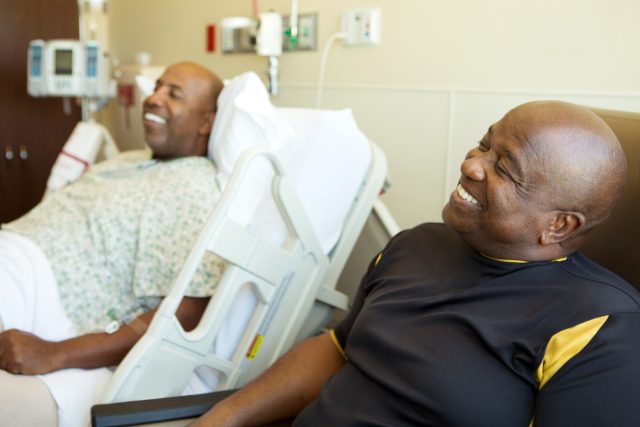
Results showed that African American veterans with PTSD had a higher risk of rehospitalization than those without PTSD. However, white veterans with PTSD did not have a significantly higher risk of rehospitalization post-stroke. People with post-traumatic stress disorder have a higher risk of heart disease and stroke. Additionally, veterans are more likely to develop PTSD than civilians, with 23 percent of veterans who receive VA care being diagnosed at some point in their lives.
Researchers from the University of Alabama at Birmingham and the Birmingham Veterans Administration conducted a study evaluating the effect of PTSD on post-stroke outcomes and rehospitalizations. Results showed that African American veterans previously diagnosed with PTSD were significantly more likely to be rehospitalized than those without PTSD. The results were published today in Stroke, the peer-reviewed scientific journal of the American Stroke Association, a division of the American Heart Association.
“If PTSD affected post-stroke outcomes, we expected it would be for veterans across the board,” said Chen Lin, M.D., associate professor in the UAB Department of Neurology, neurologist at the Birmingham Veterans Administration and senior author of the study. “Instead, we found that the African American veteran population with PTSD had a significantly higher risk than white veterans with PTSD.”
Using the VA database, Lin and the study team analyzed 93,651 African American and white veterans who had a previous stroke. Besides PTSD, Type 2 diabetes or illicit drug use were associated with a higher risk of rehospitalization in the African American population. However, heart failure or high cholesterol was associated with a higher rehospitalization risk in white veterans.
“The only factors that increased the risk of rehospitalization in both white and African American veterans post-stroke were high blood pressure, prior heart attack and the narrowing of arteries outside of the heart,” Lin said.
Lin hopes the results will improve post-discharge stroke outcomes, as well as help mitigate risk factors.
“Post-discharge care can be challenging, whether it is making it to follow-up appointments or living with disabilities that limit one’s abilities, like walking or driving,” Lin said. “Identifying risk factors, and who has the highest risk, can help physicians provide more targeted care and hopefully prevent rehospitalizations.”




